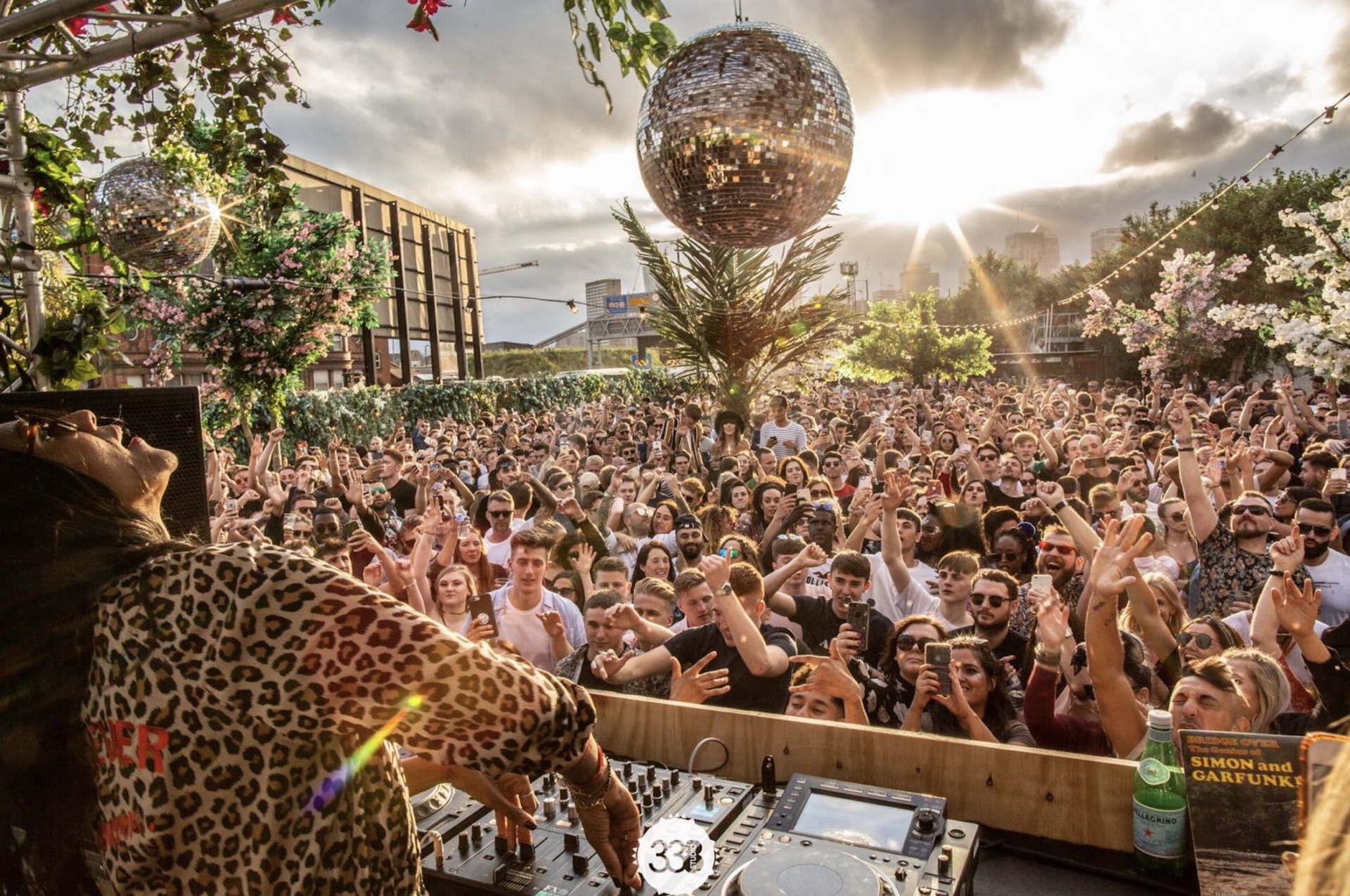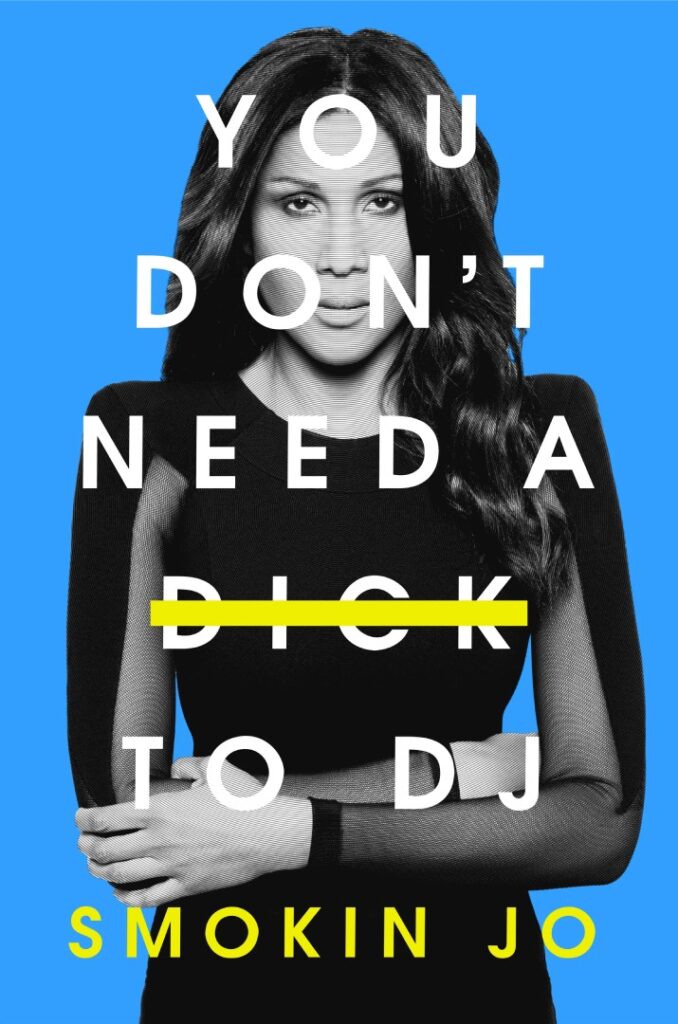Smokin Jo recalls DJing at Trade: ‘Coming down the stairs was like descending into Dante’s Inferno’
In this exclusive extract of You Don’t Need A D*ck To DJ, Smokin Jo reflects on her rise in the industry
By Smokin’ Jo

Smokin’ Jo became a huge name on the scene in the 90s and since then she is still the only woman ever to win the International DJ Award. Her memoir You Don’t Need a Dick To Be a DJ tells the story of what it’s like being one of the only women in the industry, and one of the only Black DJs on the scene at that time. It’s hedonistic and transports you back to Soho in the 90s and Ibiza as it was beginning to really take hold as the ultimate party destination. In this exclusive extract, Smokin Jo charts the genesis of her Trade era...
Jean-Noel was best mates with a DJ called Martin Confusion, who was DJing at a brand-new gay night in Clerkenwell called Trade. One afternoon at the store, Jean-Noel told me that Martin was sick and couldn’t do his set that night. ‘Maybe I could ask if you could step in,’ he suggested. ‘Yeah, go on then,’ I said, as cool as you like. The idea that someone could just recommend one of their mates to go DJ at a club seems laughable now, but that’s what happened. I rocked up there and I played, albeit nervously. This was the biggest crowd I’d played to, and as I took to the decks, my hands were shaking. Thank goodness I’d already planned a rough set and written the BPM of each track on the records to make beat mixing easier. This was just one of the skills I’d have to master as a working DJ. I also had to create atmosphere, get the flow of the set just right, and elevate the crowd with the right tracks at the right time. As it turned out, the clubbers at Trade loved me, and the feeling was mutual. I was living my life in gay clubs anyway, so getting to play for that crowd was an absolute joy. It made complete sense to me. I knew what they wanted to hear and when, and it just clicked.
After my set, Trade’s owner and promotor Laurence Malice told me he wanted me to come back and play every week, and poor Martin Confusion lost his regular slot. Within six months I’d gone from practising my DJ skills in my bedroom, making mixtapes, to a residency at the first legal after-hours nightclub in the capital. The venue where Trade was held, Turnmills, would have its regular night, which ended at 3 a.m., then all the punters would clear out, ready for Trade to start at 3.30. I started playing a warm-up set at first – though it wasn’t exactly a warm-up for most of the clientele, who’d already been out dancing, drinking and whatever somewhere else first. They were usually all ripe and ready for more before they crossed the threshold of Turnmills. It wasn’t a place where the crowd built up slowly – they’d literally swarm through the door the minute it opened. The place was insane; a Babylon of people off their tits, dancing, having sex and doing drugs. Lots of drugs, ignoring any strict drugs policies. Sure, I’d been to some full-on gay clubs before, but not playing the kind of music we were at Trade. Disco and commercial dance were off the menu; here it was New York and Chicago house at the start of the night, moving on to the sickest Detroit and European techno later. The fusion of house music and drugs was a potent one – a perfect storm. I loved playing those nights.

When I first started there, I was getting thirty quid a pop. Later, as things took off for me, I could go up to the north of England and get paid a couple of grand for playing, but I always came back to Trade. The promoter, Lawrence (or Lloret de Mar as he was also known) was a proper old-school queen – someone you’d imagine might speak fluent Polari – and such a character. It didn’t matter what happened, for Lawrence, the party never ended. The show had to go on. As old school as he was, he loved his house and techno music and he knew his shit, which is why he opened the club in the first place. He had a passion for it. He always had an admiring cohort surrounding him.
When Lawrence was around, there was always something happening. Being a DJ there could be hairy, though, and as a punter, you might actually be taking your life in your hands. Being the afterhours spot that it was, people were often mashed by the time they got to Trade, and after a few more hours of going for it in that greenhouse of a room, there were casualties. At one point I got the nickname DJ Murder, because a couple of people actually died while I was playing. Coming down the stairs into the club was like descending into Dante’s Inferno. There was a long bar on the left with these huge arched metal sculptures, with massive rivets along them. They always reminded me of something out of the Alien movies, and when I was high, I’d often imagine I was Sigourney Weaver heading to fight off the Xenomorphs. The area in front of the bar was muscle alley, where all the body beautiful preened and posed. You had to squeeze your way through this to get to the dance floor, getting coated in everyone’s sweat, whether you liked it or not – and plenty of people did! On the other side of muscle alley was the arches, which had a lower roof than the rest of the club – this was where I hung out with my mates. We called it the bug-hutch – pronounced in a thick Lancashire accent, in homage to Victoria Wood’s 1980s parody of Coronation Street. If you were on the dance floor, you had to wend your way across it, through muscle alley to the bar and then queue up for a drink. Half the time, people couldn’t be bothered, which is why so many people became dehydrated and fell over – shitloads of drugs and a few hours of furious dancing will do that to a person. When one poor unfortunate soul collapsed one day, Lawrence rushed through to the small corridor out back where all the DJs hung out, screaming, ‘Someone call the paramedics and get me a fooking G&T while you’re at it!’ I was always in awe of Malcolm Duffy, who I’d first met when we were DJing at Trade – my set was right before his. He always played the best music and his mixing was incredible, despite his tender years.
You Don’t Need A D*ck To DJ by Smokin Jo publishes on the 23 May in hardback, White Rabbit.
